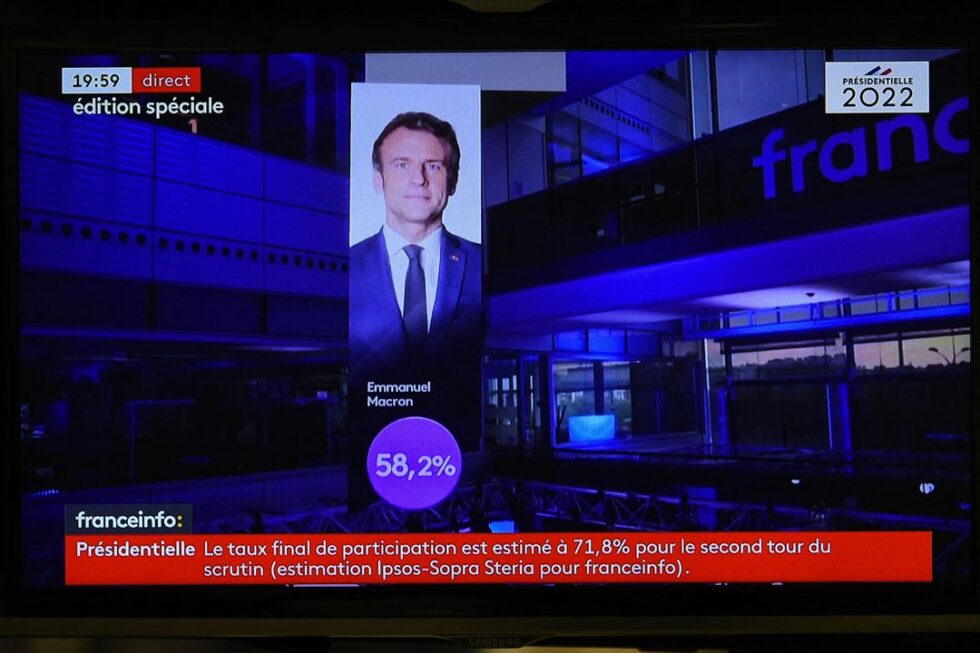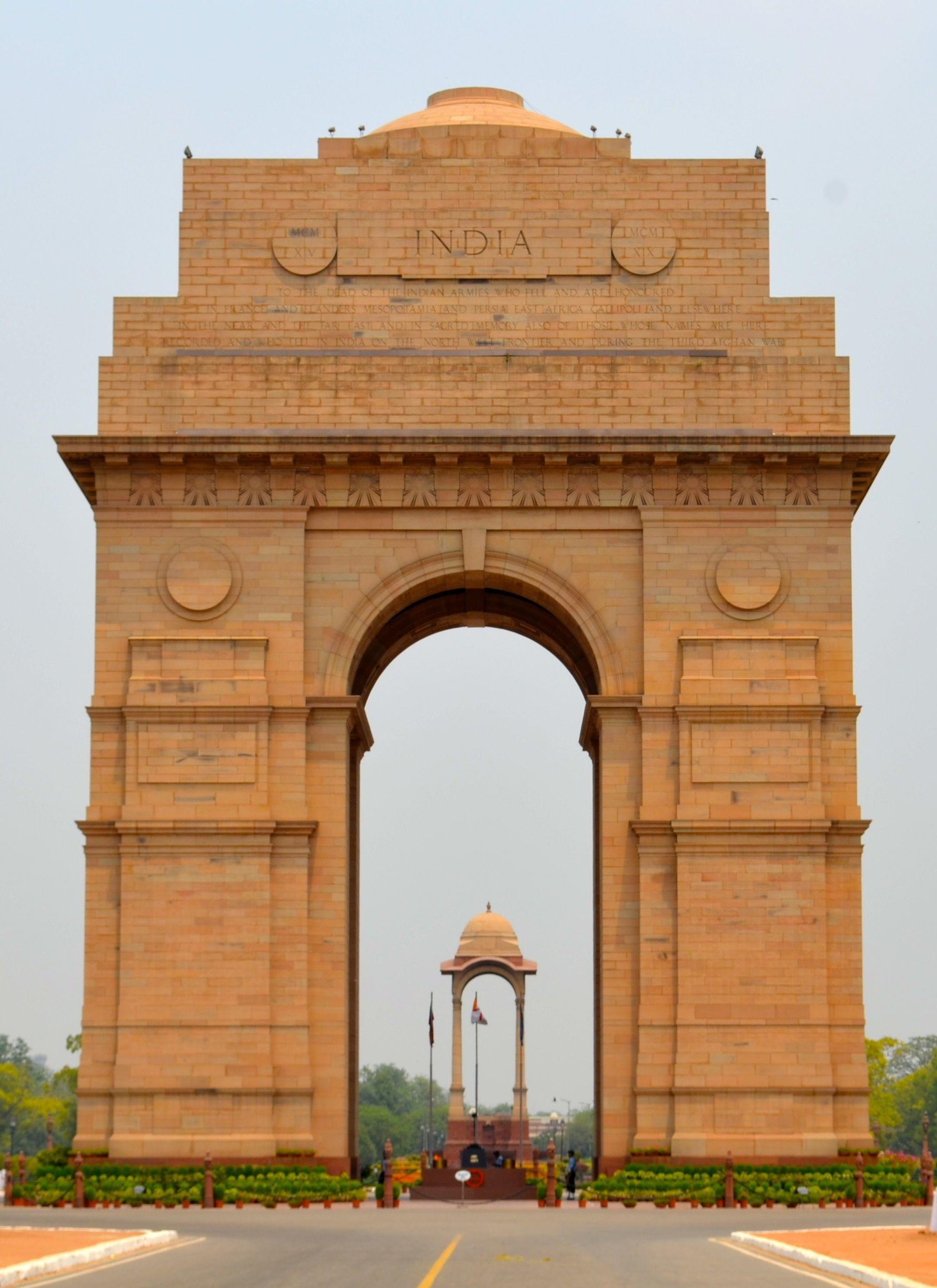
COLUMN

Gilles Paris
Columnist
The sitting president has won France’s presidential election for the second time. ‘Le Monde’ columnist Gilles Paris explains what his victory means for France and for Europe.
Published on April 24, 2022 at 21h00, updated at 09h18 on April 25, 2022 Time to4 min.
1. A triumph with many caveats
According to French standards, a victory with over 55% of the vote is usually synonymous with triumph. Emmanuel Macron‘s result is clear and neat, but it is less broad than in 2017 and it doesn’t represent the actual balance of power in a deeply divided country. When conservative Valery Giscard d’Estaing beat socialist François Mitterrand by only 424,000 votes (50.8% to his 49.2%; the smallest ever gap in a French presidential election), his legitimacy was not questioned and he was in a better position to rule than Emmanuel Macron is today.
An Ipsos-Le Monde poll published on Wednesday morning showed that an identical overwhelming majority of respondents (79%) believe that major social unrest will occur during the next five-year term, regardless of who enters the Elysée Palace. Emmanuel Macron’s platform was strongly criticized. The incumbent and centrist candidate was obliged to propose modifications on several controversial points, such as his plan to push back the legal retirement age to 65.More on this topic Macron wins French presidential election
2. The new de facto European leader is French
The Constitution of the Fifth Republic gives Emmanuel Macron extensive control in matters of foreign policy. The French president will be the unofficial leader of the European Union for the five years to come. He showed himself to be a visionary in a speech on the future of Europe delivered at the Sorbonne in 2017, calling for greater budgetary and fiscal solidarity and increased European sovereignty in matters of defense, but the then-German chancellor Angela Merkel remained deaf to his proposals. Covid-19 and Russia’s invasion of Ukraine have brought these ideas back to the top of the geopolitical agenda.
His re-election comes at a crucial moment for France’s traditional partner, the German chancellor, whose political standing is affected by his country’s economic power and political stability. The war in Ukraine, however, has weakened Olaf Scholz because of Germany’s energy links with Russia. The German coalition must urgently reformulate a strategic vision for the European Union − something that has long been neglected, while the French president has continued to multiply proposals.
However, Emmanuel Macron will have to confront his own weaknesses: In the first round of the presidential election, a majority of votes (56%) went to candidates who were openly hostile to the EU.More on this topic Subscribers onlyThe French presidential election’s great battle over Europe
3. Emmanuel Macron’s options on domestic policies are limited
Domestic affairs will be much more complicated for the re-elected president. There will be no honeymoon period, nor time to rest. First, he needs a majority in the Assemblée Nationale (parliamentary elections are scheduled for June) which is not a done deal as his leftist opponent Jean-Luc Mélenchon (La France Insoumise) is already mobilizing his troops for a third round.Read yesterday’s column The French election doesn’t end on Sunday: Round 3 is on everyone’s mind
He will have much to do to reconcile a deeply divided country. It is not clear that he will be able to achieve a reset through constitutional reform, which requires the green light from the Senate, which is still run by the conservative right. During the campaign, Emmanuel Macron spoke repeatedly of further involving citizens and intermediary bodies in decisions at the local level on issues of education and health, two sectors in crisis. It would mean a revolution in a very centralized country.
Time will also tick by fast for Emmanuel Macron, who is now limited to this second and final term. However, he will benefit from a rare opportunity: There will be no major elections until the 2024 European parliamentary elections, which are traditionally the least popular in France.
4. Far-right de-demonization is achieved
For her third presidential campaign in a row, Marine Le Pen achieved historical success despite her loss. She almost reached the same levels as conventional parties before her, meaning that her strategy of de-demonization has worked. Voting for her has become mainstream in many places in France.
Respected lecturers and pundits openly questioned her political identity as a far-right leader, even if her political manifesto or her network of alliances in Europe leave little doubt. She was greatly helped by Jean-Luc Mélenchon who refused to choose between her and Emmanuel Macron in the second round, just as he did in 2017, thus putting them on an equal footing.
However, some clouds remain: Her party is limited to her name, it lacks senior politicians and members and she was almost beaten in the first round by Jean-Luc Mélenchon, who was only 400,000 votes short.
5. Protest and anger are still around
In the first round, total votes for Marine Le Pen and Jean-Luc Mélenchon, combined with the votes garnered by another far-right candidate, Eric Zemmour (Reconquête !), as well as votes for self-proclaimed “anti-system” parties, blank votes and abstentions showed that 68% of French citizens have expressed “a protest vote.” The low turnout for the second round will be the second highest in the Fifth Republic and the high number of blank votes (many of which will have come from voters of Jean-Luc Mélenchon) confirmed a worrying trend for French democracy.
Gilles Paris(Columnist)


